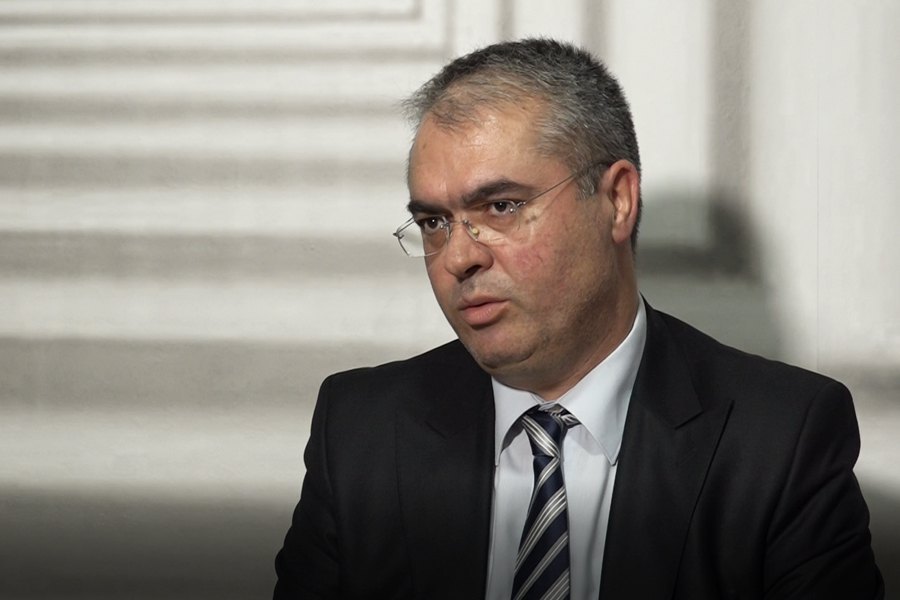
How is the topic of Ukraine being used in the Balkans, and is the Ukrainian factor a topic of political controversy?
After the war in Kosovo, we have a new geopolitical reality marked by a strong Western presence. Russia continues to do everything possible to undermine this presence, given the geostrategic importance of the Western Balkans, particularly as a global trade route, thanks to its proximity and easy access to the Mediterranean Sea. This is the main reason why Russia uses Serbia as an ally, a proxy and a regional actor within the concept of ‘Slavic brotherhood’ to promote its geopolitical and geostrategic interests.
The goal is to undermine NATO's presence and block our Euro-Atlantic integration ambitions. This is where the parallel with Ukraine lies: when you decided to move towards Europe and NATO as a security system, you immediately faced Russian aggression — first the annexation of Crimea, and then a full-scale war that continues to this day. In short, the essence of the problem is that Russia, as a revisionist state, refuses to accept the reduction of its sphere of influence.
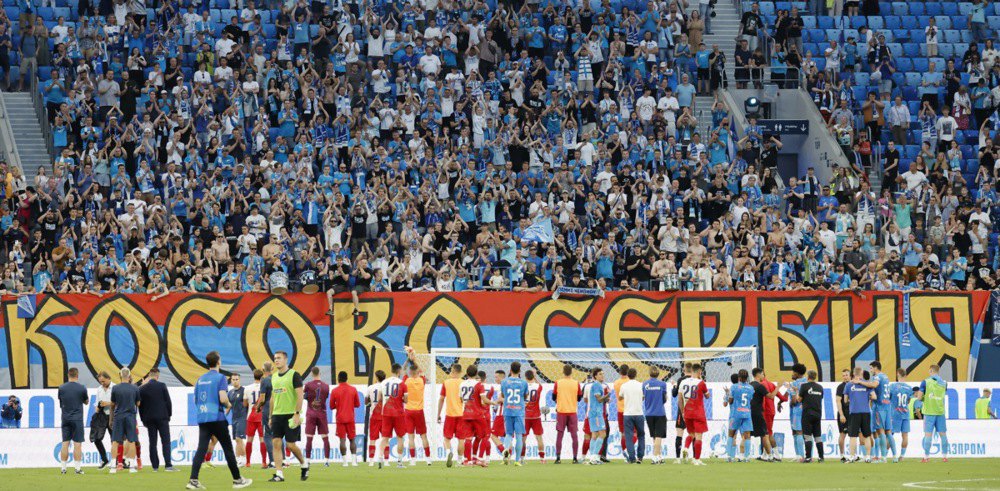
In Serbia's case, this is most evident in the propaganda model known as the ‘Firehose of Falsehood,’ which aims to distort the truth, manipulate public opinion, and reinforce anti-Western sentiments in our region. Serbia insists that the Republic of Kosovo is an artificial and unviable state. Using historical narratives, it does everything possible to block Kosovo's success, especially by hindering the integration of the Serbian community. If we analyse Serbia's actions through the Serbian List (Lista Srpska), criminal groups and parallel structures in northern Kosovo, the strategy becomes clear: they see the integration of the Serbian community in Kosovo as a major threat to their hegemonic goals. They are doing everything possible to prevent such integration, as it would create an inclusive society with Serbs as part of it. Instead, Serbian citizens are being instrumentalised as a hybrid weapon against the Republic of Kosovo.
What is the current state of relations between Kosovo and Serbia? Is there any communication, even minimal contact at the administrative level?
The situation has deteriorated in recent years, especially since the start of the war in Ukraine. As you know, the normalisation process in Brussels is in decline. In fact, there are no longer any high-level meetings. The EU has appointed a mediator to facilitate dialogue between Pristina and Belgrade, but these meetings are now meaningless.
After 2022?
There has been no concrete result because Serbia is not really interested in normalisation and rapprochement with Kosovo. Normalisation means accepting and recognising the new reality of the Republic of Kosovo in our region, and they are not ready for that. Instead, they have intensified their hybrid war against Kosovo, not only through disinformation and false narratives, but also through terrorist attacks, such as the one in Banja in 2023. A Kosovar police officer was killed in that attack, which was led by the main leader of the Serbian List, Milan Radojčić.
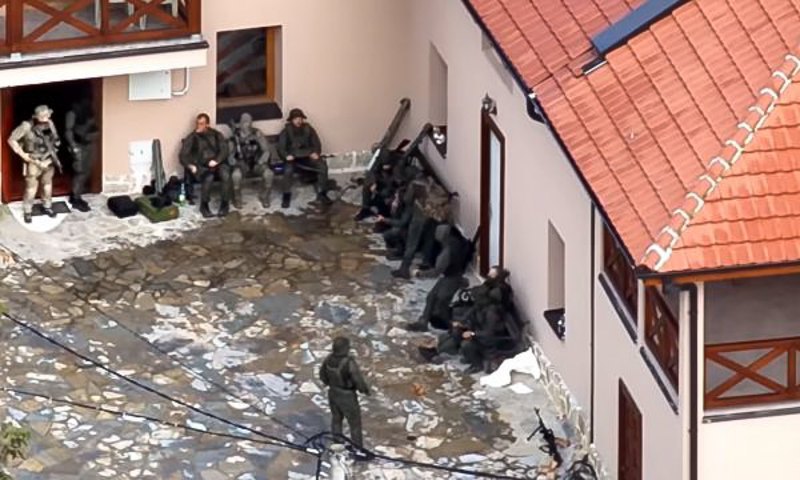
What is the European Union's position in this process? I ask because sometimes there is a line of negotiation where settlements are imposed based on the logic that ‘there will be no problems once you become a member of the European Union.’ This is the case with Moldova's Transnistria. Given Serbia's ambitions and Kosovo's aspirations for European integration, is there any logic in resolving the conflict?
In fact, Chapter 35, which concerns the normalisation of relations with Kosovo, is already a condition for Serbia. It acts as a kind of ‘safety key’ for Kosovo: Serbia cannot move forward with EU integration without normalising relations with Kosovo. However, I am not sure whether Serbian citizens are still enthusiastic about this path for their country.
European or historical compromises?
On the path to European integration. I'm not sure, because polls show that support for Europe is falling sharply due to Russia's policies and influence (in Serbia — ed.). There are strong pro-Russian sentiments there, and Russia is increasingly seen as a ‘savior.’ If you compare Western investment with Russian investment, the difference is striking. Western investment, especially from Germany and other EU countries, is significantly higher. The Serbian economy depends on the West, but despite this, Serbian citizens look towards Moscow. This is the reality in Serbia today.
Is there a Russian presence here in Kosovo, in any hidden forms, any certain sentiments?
Perhaps, but in reality, no, for historical reasons. I don't think we are in such a dangerous situation with Russian influence. Historically, Russia has supported Serbia, so the perception of its citizens remains negative. At the same time, we are actively working to convince the Serbian citizens of our country to fully integrate. They enjoy privileged rights as a minority in Kosovo. Although they make up no more than 4-5% of the population, Serbian is the second official language at the state level, and they have special rights to representation in central institutions — in parliament and government. According to our constitution, no law of particular importance can be passed or amended without the consent of the majority of Serbian representatives. This means that we cannot even amend the constitution without their vote, and we cannot pass any vital law without their consent.

And does it work?
Unfortunately, not yet. Due to propaganda, hybrid threats and harmful interference by Serbia in Kosovo. Belgrade continues to manipulate and instrumentalise the Serbian community, using it as a hybrid ‘weapon’ for its hegemonic goals.
How? How exactly are they instrumentalising them?
Through nationalist propaganda and misleading narratives about Kosovo as ‘sacred Serbian land’, about the West as ‘aggressive and unjust’, and about the Republic of Kosovo as a ‘temporary and failed state’. Their goal is to block Kosovo's international recognition and prevent its establishment as a state, i.e. membership in the UN, UNESCO, Interpol and other international organisations. And, unfortunately, they have been quite effective so far. Kosovo cannot join the UN because of Russia and China, which have veto power as permanent members. We have also been unable to join UNESCO, Interpol and other important organisations due to Serbian lobbying and manipulative media campaigns spreading narratives that Kosovo allegedly discriminates against Serbs, that Serbs are under ‘terror’ from Kosovar institutions in the north, and similar distortions.
Serbian policy objectives in the region are expansionist. In Kosovo, they hope to achieve success by creating an Association of Serbian Municipalities — a scenario reminiscent of the Republika Srpska in Bosnia and Herzegovina — as a first step towards annexation. They share the same ambitions as Dodik, working intensively to undermine the Dayton Accords.

Do you trust the American military presence here in Kosovo as a condition for peace?
Yes. It is the only way we can counter threats from the Serbian-Russian axis. And I believe that this applies not only to us, not only to the countries in our region, but to the whole of Europe. The military — and not only military — presence of the United States is vital for the whole of Europe. As you know, the security architecture of Europe has been supported by the United States since 1945. This has enabled European countries to develop economically, which is why the EU is the most successful economic project in history.
I am asking mainly in a local context, because, as I have seen, you have a huge military base here?
Yes, I think it should be clear that US support is indispensable — it is a prerequisite for our survival as a state, as a country. This does not mean that I underestimate the role of other Western countries that have strongly supported Kosovo — Germany, France, Great Britain, Italy and others. But the role of the United States has been and remains the greatest and most important for the future of Kosovo.
Do you feel that Serbia is afraid of American military power?
This is one of the main factors preventing any military invasion of Kosovo by Serbia. Thanks to NATO's presence, Serbia does not dare to attack Kosovo or launch a military invasion. Our goal is to become a member of NATO, but we face legal and procedural obstacles, as four NATO countries still do not recognise Kosovo. The same obstacle exists on our path to EU integration. In fact, the most important factor for Kosovo's security and stability is the presence of KFOR — that is, the presence of NATO through the KFOR mission.

How are the changes in American diplomacy since Donald Trump came to power perceived in Kosovo?
Due to its role, especially after 1999, the United States is perceived as the most important ally, as a security shield for Kosovo, and this is not tied to changes in power there. Who sits in the White House is not so decisive for us, as we have seen clear support from both parties in Washington: from the Democrats, through President Clinton during the war, and from the Republicans, through President George W. Bush, who directly supported our independence during his visit to Tirana (2007) and paved the way for its proclamation by our political representatives.
But Donald Trump can appear very different in different circumstances...
Yes, he is different as a politician, but I don't think his interests are different. I believe that US interests are stable. When we talk about the differences between American presidents, we must understand that this concerns their approaches, strategies, techniques and roadmaps. This does not mean that they will change the fundamental interests of the United States abroad.
But they can also make concessions to Russia, as Donald Trump did by pulling Putin out of international isolation.
No, I think President Trump tried to present himself as a peacemaker through the formula of ‘peace through strength.’ We must understand that he could use different approaches and tactics to achieve his political goals. But you know, just two or three months ago, we saw an alarming picture with your president in the White House. And after that, we also saw clear confirmation of US support for Ukraine. And I believe that Ukraine will receive all the necessary support from the United States — military, intelligence and technical.
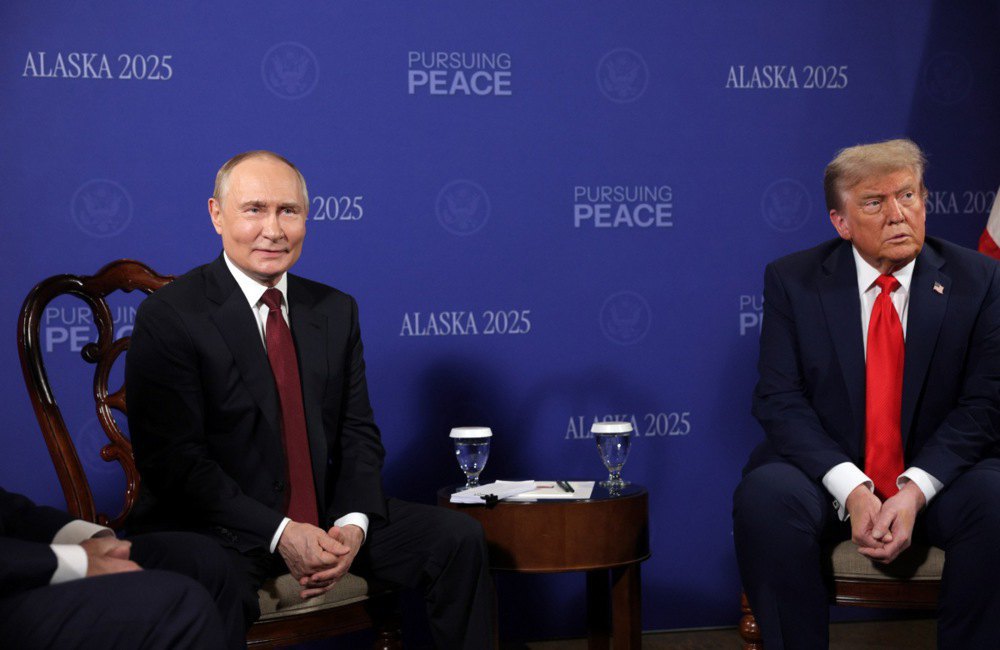
This means that President Trump has not made any decisions against the Ukrainian people's right to live independently. However, we must admit that without Western support, Ukraine cannot win this war. It is a difficult war because Russia is a very powerful country with a large nuclear arsenal.
What I mean is that, in these negotiations, it seems that the Trump administration tried to squeeze as much as possible — perhaps even from both sides, Russia and Ukraine — in order to get everyone to the table.
That's right. But some of Trump's statements caused real fear among European allies. Trump was convinced that the only way to strengthen NATO's ability to counter external threats was to force European allies to significantly increase their defence spending. He demanded that they raise it to 5% of GDP, and they responded. By 2035, all European NATO members are expected to reach this level of investment in defence and security. So Trump's approach was to impose this course on Germany, France, the UK, Italy and others — effectively building stronger NATO capabilities against any external threats. First and foremost, Russia, but potentially also China, North Korea or others.
In my opinion, Trump's approach was about rebuilding the Western front as a prerequisite for preserving the rules-based international order and securing the interests of the United States as a leading power. That is why meetings were held with Putin in Alaska, with Zelenskyy, and with other European leaders at the White House. All these attempts were aimed at imposing an agreement, but not one that would allow Putin to emerge victorious. I am confident that they will continue to be very cautious in avoiding any risk that could harm Ukrainian interests or be interpreted as a victory for Putin.
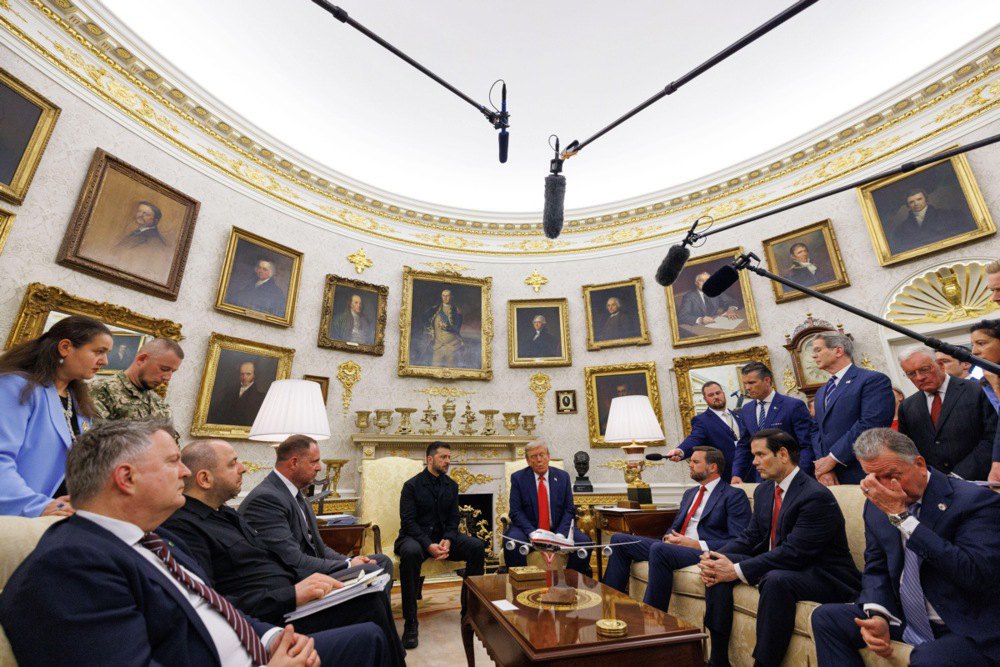
Ukraine does not recognise Kosovo as a state. How do you work with Ukraine? With Ukrainian colleagues?
Actually, I am happy to mention that we now have a very important bridge for communication with Ukraine. This bridge is our Ukrainian friends who live in Kosovo (a residence for journalists from Ukraine has been operating in Kosovo for three years – ed.). First of all, given the circumstances, they helped build understanding. But as far as official work with colleagues in Ukraine is concerned, there has been little progress on the issue of recognition.
The most important thing for my country is to continue to support Ukraine and the Ukrainian people. I think Tirana (Albania) can play a more significant role here, as Prime Minister Rama has met with President Zelenskyy several times. However, we should not expect Ukraine to recognise Kosovo in the near future. I think we need to wait until the war is over. After that, I am convinced that we will have very important channels of communication. Dialogue is the only way we can move forward and ultimately secure Kosovo's recognition by Kyiv.








